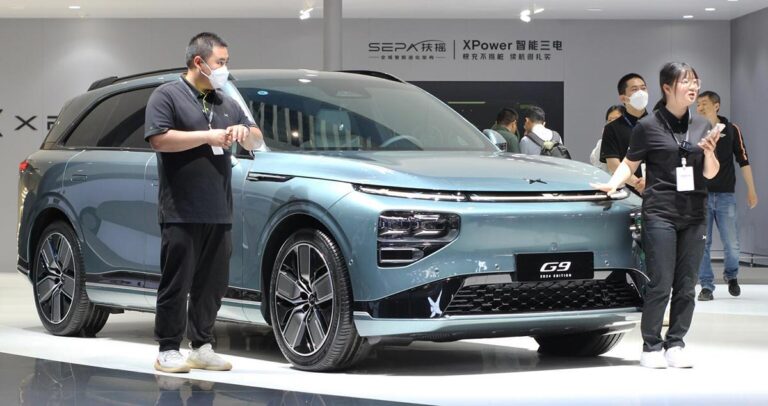Providing Xpeng’s self-driving and EV technology to other automakers can create new revenue streams, Brian Gu, vice president of the company, said in an interview with the South China Morning Post.

Xpeng (NYSE: XPEV) sees partnerships with other automakers becoming a long-term trend, as the Chinese electric vehicle (EV) maker develops joint models with German car giant Volkswagen. There is.
Providing Xpeng’s self-driving and EV technology to other automakers can create new revenue streams, company vice president Brian Gu said in an interview with the South China Morning Post on May 17. mentioned in.
The company will officially debut the G6 SUV (sport utility vehicle) and X9 MPV (multipurpose vehicle) in Hong Kong on May 17, with the first right-hand drive version of the G6 expected to be delivered in the third quarter.
“It’s hard to imagine traditional automakers relying on their own capabilities to quickly develop smart driving technology, so we see more collaboration as a long-term trend,” Gu said, according to the South China Morning Post. “There is,” he said.
He said smart driving technology is the future of EVs, and recent partnerships with other automakers allow Xpeng to license its technology and generate significant economic benefits.
“I think if you have cutting-edge technology, there are many ways to monetize it,” Gu said.
Auto giants such as Volkswagen and General Motors, once dominant in China, now report that they are struggling to keep pace with mainland Chinese EV makers as progress in electrification has been slow. The book points out.
On July 26, 2023, Volkswagen announced that it will invest approximately $700 million to acquire approximately 4.99% of Xpeng, and the two companies plan to jointly develop a Volkswagen-branded EV2 model for the Chinese mid-size car market. .
According to a statement last July, Xpeng and Volkswagen will build the two models using their respective core competencies: the Xpeng G9 platform, connectivity and ADAS (advanced driver assistance systems) software.
On April 17, Xpeng announced that it has signed a framework agreement with Volkswagen for technical cooperation in electrical and electronic architecture (E/E architecture).
According to a statement last month, the two companies will jointly develop Xpeng’s latest generation E/E architecture and integrate it into Volkswagen’s China Main Platform (CMP).
Nimble Chinese startups are seen as having a technological advantage in electrification. In addition to Xpeng, more local companies are partnering with foreign automakers.
On October 26, 2023, Leap Motor announced that Stellantis will invest 1.5 billion euros ($1.6 billion) to acquire a roughly 20% stake, making the European auto giant the company’s largest external shareholder. .
Leapmotor International, a joint venture between Leapmotor and Stellantis, was officially launched on May 14th and will begin selling vehicles in Europe from September.
Stellantis will lead with a 51 percent stake in the Amsterdam, Netherlands-based joint venture, with Lieb Motor holding the remaining 49 percent.
On February 26, Nio (NYSE:NIO) announced that its subsidiary Nio Technology (Anhui) Co., Ltd. has signed a technology licensing agreement with FourSeven Limited, a subsidiary of Abu Dhabi sovereign wealth fund CYVN Holdings. .
According to the announcement, Nio has granted FourSeven a non-exclusive, non-transferable grant to use some of its existing and future technical information, technology solutions, software and intellectual property related to its smart EV platform. Grant a worldwide license.
Forseven is a UK-based electric vehicle startup backed by CYVN.
(1 dollar = 0.9273 euro)
Nio signs technology license agreement with CYVN subsidiary Forseven

